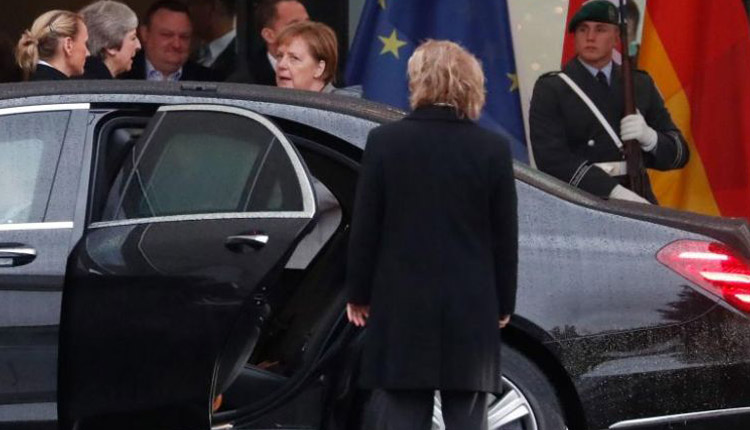Prime Minister Theresa May has embarked on another European tour to seek more flexibility from the continent’s leaders over her draft Brexit deal
May decided to postpone a U.K. parliamentary vote on the Withdrawal Agreement, a 585 page-document that she put together with the other 27 European countries and which outlines how the U.K. should leave the EU in March.
However the U.K. government suddenly pulled the vote, originally due to happen on Tuesday night, after it became clear that May was heading for a heavy defeat.
Now she is travelling to the Netherlands, Germany and Brussels on Tuesday in an attempt to get a few more concessions from the European side. However, even though the other 27 governments want to help May to get the deal approved in the U.K. parliament, there is no willingness to change such agreement.
“The deal we have achieved is the best deal possible, it is the only deal possible,” Jean-Claude Juncker, President of the European Commission said Tuesday.
“There is no room whatsoever for renegotiation,” Juncker told EU lawmakers, adding that there is however room to “give further clarification” on what the deal actually says.
Rome, Berlin and Paris have also echoed a similar stance.
“I cannot imagine where we could change something substantial in the withdrawal agreement,” Germany’s EU affairs minister Michael Roth said Tuesday in Brussels.
“It is so sad, it is a really, really sad situation not just for the people in the United Kingdom, but also for us in the EU 27.”
France’s Europe minister Nathalie Loiseau also said: “We’ve done a lot to help the U.K.”
“This withdrawal agreement is the only possible agreement” and “we’ve done a lot of concessions to reach it.”
And in Rome, the Italian Prime Minister Giuseppe Conte said European countries neow needed to prepare for the worst outcome.
“We need to underline the need for Britain to depart from the European Union in an orderly fashion,” Conte told parliament before adding, “We will continue to work with our European partners to prepare for the little-hoped-for scenario of an exit without a deal.”
The biggest issue preventing the Brexit process from moving forward is still the Irish backstop – the solution that the U.K. government and the EU put together to prevent a hard border between Northern Ireland and Ireland.
The backstop is essential, in the eyes of Europe, to continue the peace process between North Ireland and the Republic of Ireland. It is also something that the U.K. government has agreed to in order to avoid the same problem at the Irish border. However, both sides have made it clear on several occasions that this backstop will only be in place if they do not strike a trade agreement in the coming years.
But that has not convinced some U.K. lawmakers, who believe that the chance of having the backstop in place will be legally possible indefinitely.
“Ireland will never be left alone,” Juncker said on Tuesday, reinstating the importance of the Irish backstop in the Withdrawal Agreement.
In Ireland, the government said Tuesday that a no-deal Brexit is still “unlikely”, but in the meantime the preparations for that event are taking place.
European Council President Donald Tusk called for an emergency Brexit summit this Thursday to discuss the latest state of the Brexit process. However, Tusk also said that the meeting will also be about no-deal preparations.
The U.K. is still set to leave the European Union in March and time is running out ahead of that deadline. By then, the current withdrawal agreement would have to have been approved in the U.K. and the European parliaments, if the U.K. were to leave in an orderly way.
But without that ratification in place, the chances of a no-deal or even no Brexit increase.
“Does this House want to deliver Brexit?,” Prime Minister Theresa May asked U.K lawmakers on Monday. “There will be no enduring and successful Brexit without some compromise on both sides of the debate.”


